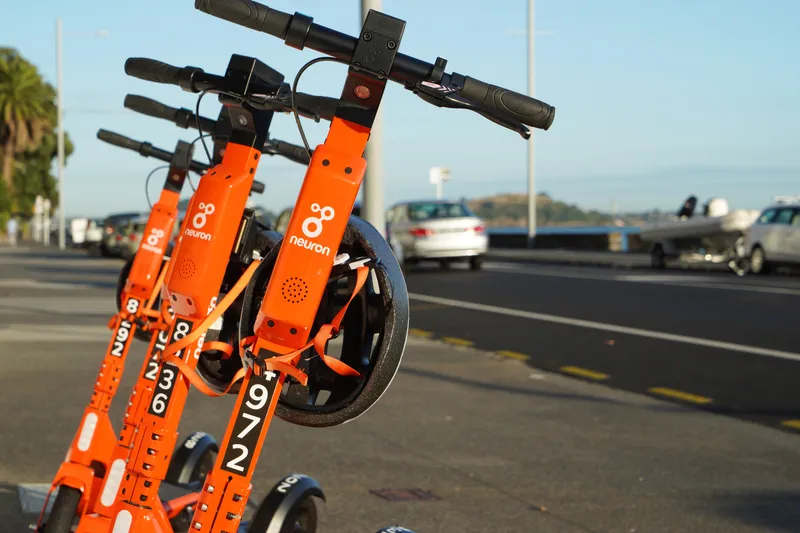
Neuron has partnered with Slough Borough Council in the UK to deploy 250 of its 'safety first' electric scooters over the next 12 months.
Slough is a town in Berkshire, a county in south east England.
Neuron and the council are using geofencing technology to control the riding area and create dedicated parking zones and no-go zones in specific areas to improve safety.
Neuron says there will be more than 60 parking stations with 25 located in the town centre. All parking stations are highlighted in the app and also marked on the ground. Each e-scooter can be identified through its number plate.
Other safety features include an app-controlled helmet lock that secures a safety helmet to e-scooters between trips and a 'topple' detection feature that can detect if an e-scooter has been left on its side and alert an operations team to reposition it safely.
Additionally, riders can use an emergency button to call emergency services while a 'Follow my Ride' feature allows the user's friends and family to track an e-scooter trip in real-time.
Neuron CEO Zachary Wang says: “Our e-scooters are a safe and convenient way to get around particularly for those who wish to practice social distancing.”
As part of the deployment, Neuron has established a dedicated safety team that will use hospital-grade disinfectant to keep e-scooters and helmets clean. They will also move e-scooters to where they are needed most, assist new riders with signing up on the app and deliver practical tips for safe riding.
Riders must be over the age of 18 and hold a full or provisional driving licence to book an e-scooter via Neuron's app. Single trips will cost £1 to unlock the e-scooter and 18p per minute.
More frequent users have the option to purchase Neuron Passes, a subscription service that is available in three-day (£15), weekly (£22), or monthly (£36) options. The packages will allow users to ride as many times as they want for up to 90 minutes per day.
The speed limit for the e-scooters will be capped at 15.5 mph and they will share the same road space as bicycles including low speed roads, cycleways and tracks.
Cllr Rob Anderson, Slough Borough Council cabinet member for transport and the environment, says: “The town’s bus lanes, including the current experimental lanes on the A4, will be able to be used by the rental scooters leading to them being an attractive and sustainable way to travel in the borough.”







